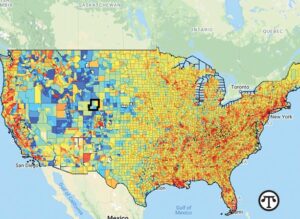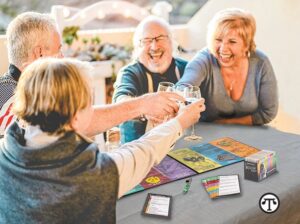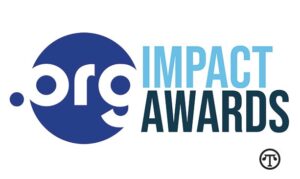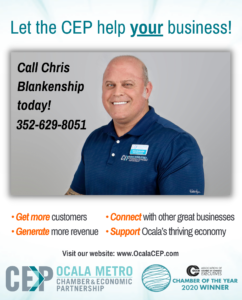Health, Home & Family
 (NAPSI)—Nationwide, in both major cities and small towns, neighborhoods with more Black, Hispanic and Asian residents experience hotter temperatures during summer heatwaves than nearby white residents, regardless of a neighborhood’s income.
(NAPSI)—Nationwide, in both major cities and small towns, neighborhoods with more Black, Hispanic and Asian residents experience hotter temperatures during summer heatwaves than nearby white residents, regardless of a neighborhood’s income.
These racial disparities exist because non-white neighborhoods tend to be more densely built up with buildings and pavement that trap heat, and have fewer trees to cool the landscape, according to the nationwide study in the AGU journal Earth’s Future, which publishes interdisciplinary research on the past, present and future of the planet and its inhabitants.
The trend held up even when wealth was taken out of the picture. When residents had a similar income, non-white neighborhoods still faced significantly higher temperatures than white ones in 71% of the counties.
“Urban climate is different from temperatures outside the city,” explained the study’s co-author Susanne Benz, an environmental scientist who conducted this research at the University of California, San Diego and is now at Dalhousie University. “Inside the city, temperatures are affected by the buildings surrounding you and by the surface of the streets.” Dark pavement absorbs sunlight and releases the heat at night, while trees and other vegetation cool an area through transpiration, when they release water vapor through pores in the leaves. Continue reading
 To get a tropical look in a warm temperate garden, one most interesting is the little-known genus Curcuma which includes Curcuma longa the culinary spice turmeric. Curcuma, or hidden cone gingers, is a genus of mostly tropical plants known for their dramatic bold foliage, flamboyant floral show. Curcuma can range in height from just under 2′ to over 7′ tall. The slightly hidden flowers resemble psychedelic pinecones…a nice trip back to the 1960s.
To get a tropical look in a warm temperate garden, one most interesting is the little-known genus Curcuma which includes Curcuma longa the culinary spice turmeric. Curcuma, or hidden cone gingers, is a genus of mostly tropical plants known for their dramatic bold foliage, flamboyant floral show. Curcuma can range in height from just under 2′ to over 7′ tall. The slightly hidden flowers resemble psychedelic pinecones…a nice trip back to the 1960s.

Group of happy senior friends cheering at barbecue meal in terrace outdoor – Mature old people drinking wine at patio bbq dinner – Main focus on left hands glasses – Joyful elderly lifestyle concept
(NAPSI)—Over 70 million Baby Boomers grew up playing board games and watching game shows together—and they still love doing both.
A new pop culture trivia game is taking Boomers on a nostalgic road trip back to the ’50s, ’60s, and ’70s. Designed to be played by two teams, Boom Again features thousands of questions drawing upon Boomer’s memories of advertising slogans and jingles, politics and social movements, movies, music, television, and more. \
Groups of Baby Boomers are laughing their way through memories on a wide variety of their experiences: from The Twist to Disco; American Bandstand to Soul Train; Doris Day all the way to Janis Joplin, and on to Steve Martin; Hula Hoops to The Pill; and poodle skirts to mini-skirts. And they are singing their way through all the music of their youth, too. Continue reading
From the internet
Years ago, Al Capone owned Chicago . Capone bootlegged booze, prostitution and had people murder.
Capone’s lawyer nicknamed ‘Easy Eddie.’ Easy Eddie’s skill at legal loop holes kept Capone out of jail for a long time.
Easy Eddie had a son that he loved dearly. Eddie saw to it that his young son had clothes, cars, and a good education. And, despite his involvement with organized crime, Eddie even tried to teach him right way. Eddie wanted his son to be a better man than he was.
With all his wealth and influence, there were two things he couldn’t give his son; he couldn’t pass on a good name or a good example.
He decided he would go to the authorities and and try to clean up his name , and offer his son some semblance of integrity. To do this, he would have to testify against The Mob, and he knew that the cost would be great, he testified. Continue reading
(NAPSI)—Zero net emissions of carbon dioxide from energy and industry can be achieved by 2050—and it could cost only about $1 a day. That’s the finding of a new study by James Williams at the University of San Francisco and Margaret S. Torn at the Lawrence Berkley National Laboratory. The study can be found in the peer-reviewed journal AGU Advances, which publishes high-impact, open-access research and commentary across the Earth and space sciences.
Why It Matters
According to the Intergovernmental Panel on Climate Change (IPCC), the world must reach zero net carbon dioxide emissions by mid-century to avoid the most dangerous effects of climate change.
How To Do It
The researchers say it can be done by:
- Increasing energy efficiency.
- Switching to electric technologies.
- Using clean energy (especially wind and solar power).
- Deploying a small amount of carbon capture technology.
 (NAPSI)—About 40.7 million Americans have some kind of disability, according to the U.S. Census Bureau. If you or someone you care about has a disability, you may wonder what it means for employment. You may be encouraged to know that there are supports and services available that can help you or your loved ones pursue work and reach your goals through Social Security’s Ticket to Work (Ticket) program.
(NAPSI)—About 40.7 million Americans have some kind of disability, according to the U.S. Census Bureau. If you or someone you care about has a disability, you may wonder what it means for employment. You may be encouraged to know that there are supports and services available that can help you or your loved ones pursue work and reach your goals through Social Security’s Ticket to Work (Ticket) program.
Ticket To Work Program
The Ticket program supports career development for people ages 18 through 64 who receive Social Security disability benefits and want to work. This program is free and voluntary. Program participants select a service provider to help them prepare for, and find, a job. The provider may be a State Vocational Rehabilitation (VR) agency or an Employment Network (EN)—a public or private organization that has an agreement with Social Security—to offer:
•Career planning
•Job placement assistance
•Ongoing employment support.
These career development services and supports are unique to each individual. Participants work with their service providers to develop a customized plan and identify the supports they need to reach their work goals. Continue reading
 (NAPSI)—At a time when their efforts were desperately needed, organizations helping to combat the effects of the coronavirus, champion equality and diversity, and provide medical care for those in need headlined this year’s .ORG IMPACT Awards. The awards, presented by Public Interest Registry, recognize organizations that are healing, helping, and inspiring others around the world.
(NAPSI)—At a time when their efforts were desperately needed, organizations helping to combat the effects of the coronavirus, champion equality and diversity, and provide medical care for those in need headlined this year’s .ORG IMPACT Awards. The awards, presented by Public Interest Registry, recognize organizations that are healing, helping, and inspiring others around the world.
Days for Girls International was the recipient of the .ORG of the Year Award for its efforts to promote health for millions of women and girls and prevent the spread of COVID-19 through its MasksForMillions Campaign. “Every day, Days for Girls is empowering women and girls to achieve their dreams by providing critical education and health resources to those who need them,” said Jon Nevett, the CEO of Public Interest Registry, which acts as operator of the 10 million-plus .ORGs around the world.
Other .ORG of the Year recipients included Kayla Cares 4 Kids—an organization Kayla Abramowitz founded at age 11—that collects and donates entertainment and educational items to children’s hospitals nationwide, and Change Labs, which promotes diversity, inclusion, and equity by increasing the number of Native-owned small businesses operating in Native communities. “Their work is a critical part of providing equity and opportunity to Native Americans seeking to achieve their dreams by becoming small business owners,” said Nevett. Continue reading
 (NAPSI)—With more than half of the state’s third graders having experienced tooth decay, the Tooth Fairy is canvassing the state—virtually—to help improve the dental health habits of her young friends, in hopes of a cavity-free Washington.
(NAPSI)—With more than half of the state’s third graders having experienced tooth decay, the Tooth Fairy is canvassing the state—virtually—to help improve the dental health habits of her young friends, in hopes of a cavity-free Washington.
“Children who experience tooth decay are more likely to miss school, have lower academic success, experience nutritional and speech development issues… and over time, become more susceptible to systemic inflammation, which may limit growth and development. It can also result in an increased risk for lifelong dental problems,” explains Abbie Goudarzi, DDS, a licensed dentist and Delta Dental consultant. “It’s really unacceptable that more than half of our state’s third graders have tooth decay, a number that’s even higher in many rural and BIPOC communities.”
To help address the issue, the Tooth Fairy is making virtual appearances in classrooms and community-based youth organizations statewide as part of her interactive pediatric dental health education program, The Tooth Fairy Experience, designed to make dental health education fun for students in kindergarten through second grade.
The free 30-minute interactive presentations led by the Tooth Fairy are customized for each learning environment—including a storybook reading, fun teeth facts, proper brushing techniques, tooth science experiment, dental health hand puppets and a sugar demonstration. It’s all aimed to improve dental health behaviors of kids as they enter their cavity-prone years, and to spur regular dental exams—which were down 17 percent statewide last year for 5-10-year-olds, claims data from the state’s largest dental benefits provider reveal. Continue reading

Economic crisis, Businessman using mobile smartphone analyzing sales data and economic graph chart that is falling due to the corona virus crisis, Covid-19, stock market crash caused.
(NAPSI)—When it comes to gathering information to make an investment decision, investors have access to a variety of online information sources, from investment platforms to news and social media. No matter where you get your trading insights, know this: Where there is opportunity, there is also risk. Stock markets go up and they go down—and the steeper the rise or the fall, the easier it can be to derail a long-term strategy with a snap, emotionally driven decision.
Fortunately, you can use these tips to keep emotions in check.
1.Be mindful. Mindfulness can be helpful, even with investing. Before you make an investment decision, ask yourself whether an investment aligns with your financial goals. Small-dollar investments based on hype around a security might turn into big gains, but they can just as easily turn into big losses.
2.Mitigate your risk. Make sure your investment decision involves a level of risk you, not necessarily others, are comfortable with. Some people have the means to take risky bets, but many do not. Short-term trading in a volatile market carries significant risk of loss. Above all, if you seek short-term returns, don’t sacrifice money you cannot afford to lose. Remember that diversification—spreading out your investments both across and within different asset classes—can help you manage your risk.
3.Consider your source. Some companies offer tools that analyze or aggregate information from social media sources to help investors make investment decisions. Depending on how it is presented, this social sentiment information—particularly real-time discussion platforms and buy/sell indicators driven by social sentiment—can lead to impulsive investment decisions, which can be a risky way to approach investing. Continue reading
(NAPSI)—If you or someone you know has ever had blood cancer, a term you might have heard is “minimal residual disease,” or MRD. MRD refers to the small number of cancer cells that can stay in the body during and after treatment. Often, these cells are present at such low levels they do not cause any physical signs or symptoms. However, they may be a sign that cancer is returning.
As one of the strongest predictors of patient outcomes in blood cancer, MRD status can help you and your doctor understand how your body is responding to treatment and how it may change over time. When your MRD status shifts, you may find that the course of your blood cancer journey changes as well.
clonoSEQ® is an FDA-cleared test used to detect MRD in bone marrow from patients with multiple myeloma or B-cell acute lymphoblastic leukemia (B-ALL) and blood or bone marrow from patients with chronic lymphocytic leukemia (CLL). Testing is ordered by your doctor and performed by a licensed lab. clonoSEQ can detect very low levels of MRD—one cancer cell among a million cells (provided sufficient sample input)—so you and your doctor can be confident in your MRD status and prepared to act quickly if the cancer returns. Continue reading

